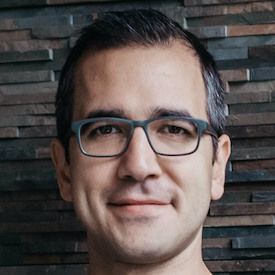One of my guilty pleasures is reading Dan Brown novels.
I love the startling plot twists, the cliffhangers, and the adrenaline rush produced by his over-the-top plots.
Reading airport thrillers isn’t “productive,” so I’d call it my guilty pleasure.
But then I started to question the term “guilty pleasure.” The implication is clear: If it feels good—and if it’s not intellectual or doesn’t serve some clear productive purpose—you better feel guilty about doing it.
We’ve been conditioned to attach guilt to pleasure.
We’ve been told that we improve ourselves by fighting ourselves, distrusting what makes us feel good, and denying ourselves what we desire.
“This is the entire premise of the prevailing hustle culture: If you’re not in pain—if you’re not constantly grinding, hustling, and struggling—you’re not doing it right.”
The war against the self dates back to our early schooling. Day in and day out, students are forced to do what they don’t want to do. In school, any unauthorized movement is subject to discipline. Essential bodily functions require permission from the school authorities. Rules are imposed arbitrarily: Even though chewing gum doesn’t impede learning, the behavior is still punished.
Modern society then reinforces this way of operating. This is the entire premise of the prevailing hustle culture: If you’re not in pain—if you’re not constantly grinding, hustling, and struggling—you’re not doing it right.
This mindset is so prevalent—the sacrifice of personal desires for external rewards is so persistent—that people lose touch with what they really want. (Side note: Do you know what you want—what you really want? Most people struggle to answer that seemingly simple question).
Animals don’t equate pleasure with guilt. For them, pleasure is a natural guidance system toward things like food and warmth that help their survival. Humans might be the only creatures that intentionally try to suppress pleasure and pursue pain.
“Ask yourself what makes you come alive, and go do that.”
Some of you might be thinking: If you remove the guilt attached to pleasure, it’d just be cigarettes and booze and video games (and Dan Brown novels!) for days on end. If you had free rein, sure, you might do some of this for a little while, but you’d eventually get bored. It’s by giving yourself permission to do what you think you want that you discover what you truly want (and don’t want).
I used to think that doing things that gave me pleasure was self-indulgent. But it’s quite the opposite. Doing what you want isn’t a burden on the world. It’s a beacon. When you do that, you establish a new way of existing, one for others to also follow. When you shine, you help others shine, to paraphrase Lizzo. When you let light hit your prism, you cast a rainbow that extends far beyond yourself.
This doesn’t mean pursuing desires that harm others or yourself. And yes, there are times for postponing pleasure and sacrificing the short term in favor of the long.
But struggle can’t be the default mode of operation. And guilt shouldn’t be the constant partner of pleasure.
“Ask yourself what makes you come alive, and go do that,” as Howard Thurman says. “Because what the world needs is people who have come alive.”
Ozan Varol is a rocket scientist turned law professor and bestselling author. Click here to download a free copy of his eBook, The Contrarian Handbook: 8 Principles for Innovating Your Thinking. And download the Next Big Idea App to enjoy a “Book Bite” summary of his latest book, Think Like a Rocket Scientist.































